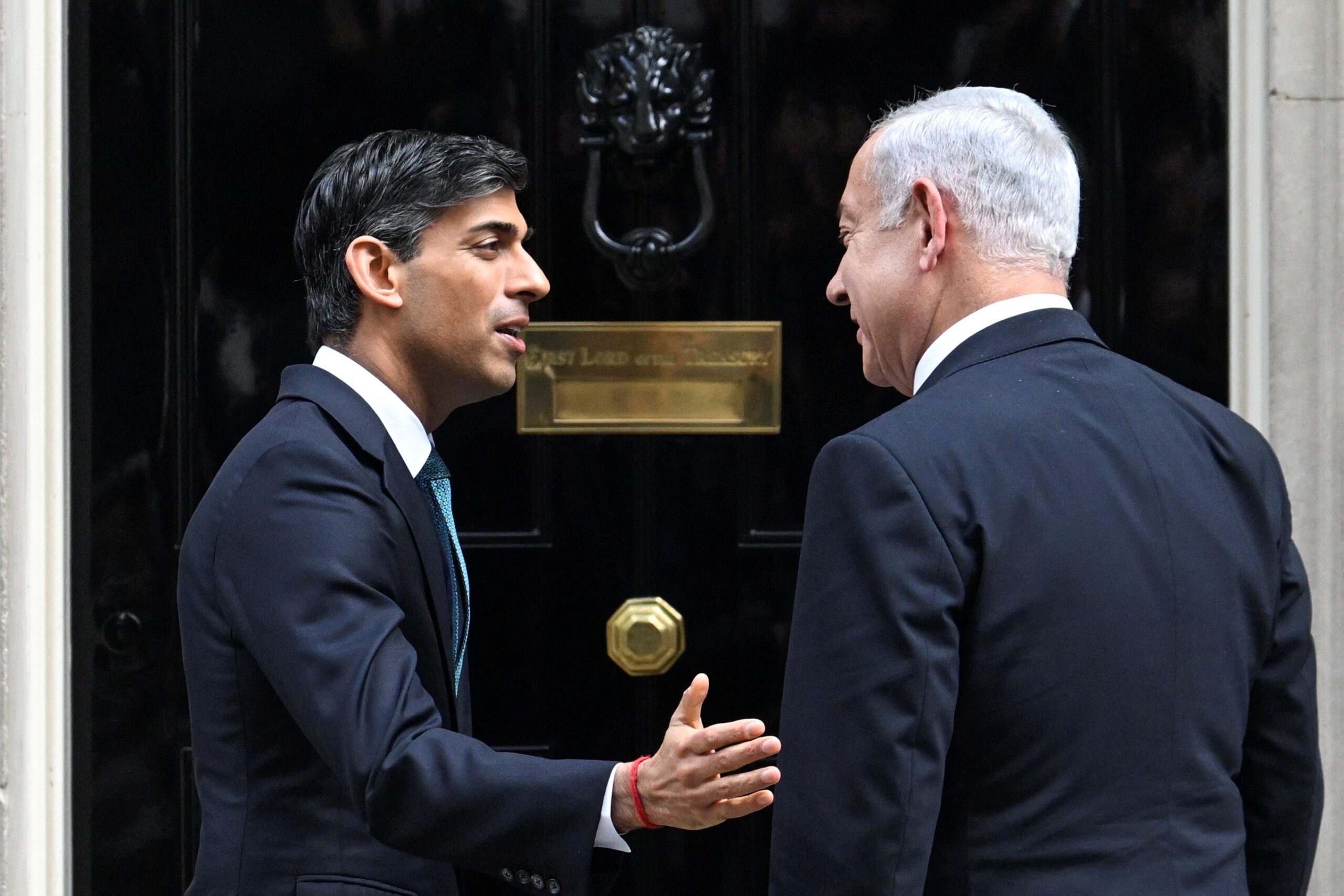As Israel continues its military offensive in Gaza, a growing number of people in the West are questioning the acceptability of this manufactured horror. Over a million people in Britain have taken to the streets demanding a ceasefire, with 58 percent unequivocally supporting such a cessation and an additional 18 percent leaning towards the necessity of a ceasefire.
Britain, a nation that prides itself on democratic values, the rule of law, and human rights, has found itself mired in controversy. Government figures have labeled British protestors as “hate marchers,” attempted to ban Palestinian flags, dismiss journalists, and suspend university students participating in Palestine protests.
This shift is not sudden – Britain remains consumed by colonial practices, such as Eurocentric knowledge production, violence, and coercion. The British mainstream media, of which three companies own 90 percent, consistently backs the government agenda by failing to critique Israel’s actions.
Questioning the media, who, idealised as a free press, means turning against perceived rationale and the status quo. Likewise, pro-Israel groups maintain close ties with the British government, fostering a revolving door between the Israeli Embassy and various governmental bodies, directly funnelling Israeli desires through the top levels in government.
This influence is also particularly evident on university campuses, which member of UK Lawyers for Israel Lesley Klaff once described as “key conduits in the global assault on Israel’s legitimacy.”
Groups positioned against Palestinian sympathisers on campuses such as the Union of Jewish Students which is partially funded by the Israeli Embassy regularly promote Zionist agendas.
Private donations have been set aside to fight BDS in this space, and founder of BICOM Poju Zabludowicz has contributed £300,000 while the Board of Deputies promised an additional £1 million.
This influence and these donations do not occur in isolation.
The lobbying extends to suppressing Palestinian sympathizers, speakers, and groups on campuses, as witnessed in multiple instances, including the cancellation of conferences and investigations against students and professors at Russell group universities across the UK.
Notably, in 2022, the University of Manchester fired art curator Alistair Hudson for an exhibition detailing the impact of pollution, chemical weaponry, and explosions on Gaza titled “Cloud Studies.” It was later revealed that UK Lawyers for Israel pressured the University into getting rid of Hudson.
Beyond Universities: Governmental Bodies
The influence of the Israel lobby is not limited to campuses – it permeates the highest levels of the British government. British Prime Minister Rishi Sunak’s self-proclaimed status as a “proud friend of Israel” is symbolic of the government’s pro-Israel stance.
This sentiment, shared by many British leaders, was reinforced during a Conservative Friends of Israel lunch in 2022, attended by influential figures such as Israeli Ambassador Tzipi Hotolevy, Theresa May, Boris Johnson, and Liz Truss.
Conservative Friends of Israel has been described as ‘one of the most active groups in Westminster’ and is the largest donor of free trips abroad for British MPs. In August 2023, the group took cabinet ministers Suella Braverman and James Cleverly on a whistle-stop tour of occupied Palestine.
In November 2023, the same group tweeted that “Hamas’s main headquarters (are) under Shifa Hospital,” putting thousands of Palestinian lives at risk and manufacturing consent for the genocide.
Even the ‘left-wing’ Labour Party, traditionally sympathetic to Palestine, has shifted its stance under Keir Starmer’s leadership. Starmer, who rose to prominence amidst Jeremy Corbyn’s decline, has abandoned the party’s pro-Palestine position, indicating a broader trend of dwindling pro-Palestinian perspectives within the British political landscape.
Beyond lobbying, the British government’s foreign policy in the Middle East is heavily influenced by its alignment with the United States. The West’s increasing dependence on Israeli capabilities, particularly in technology, security, and weapons testing, has seen rapid growth in the past few years.
Now, the discovery of the Leviathan gas fields off the coast of occupied Palestine adds a new layer to this reliance, as Western nations seek to diversify their gas and oil supplies due to the Russian invasion of Ukraine.
The economic implications of a ceasefire are significant, with potential repercussions for individuals like Rishi Sunak. The Prime Minister, who roots stability in the eradication of Hamas, has strong reason to keep the war ongoing.
His familial ties to Infosys, deeply involved with oil/gas firm BP, raise questions about personal financial interests. BP was recently awarded a license to explore the Leviathan field and could likely work alongside Infosys on this project. The two entities signed a joint Memorandum of Understanding earlier this year for Infosys to provide BP with technologies and AI.
Israel, who are currently suffering from economic repercussions as a result of war, is losing an estimated $260 million everyday according to Bloomberg. Since October 7th, several Israeli businessmen have been particularly vocal about the economy, pushing for investment in Israeli businesses.
Uri Levine, founder of Waze, is one of these voices, expressed in tweets such as: “We are going to fight Hamas like there is no other business, and we are going to continue our business like there is no Hamas.”
Levine, a former member of Israeli Military Unit 8200, just so happens to also be a director at Infosys. Sunak’s wife has a stake of $400 million in the same company.


